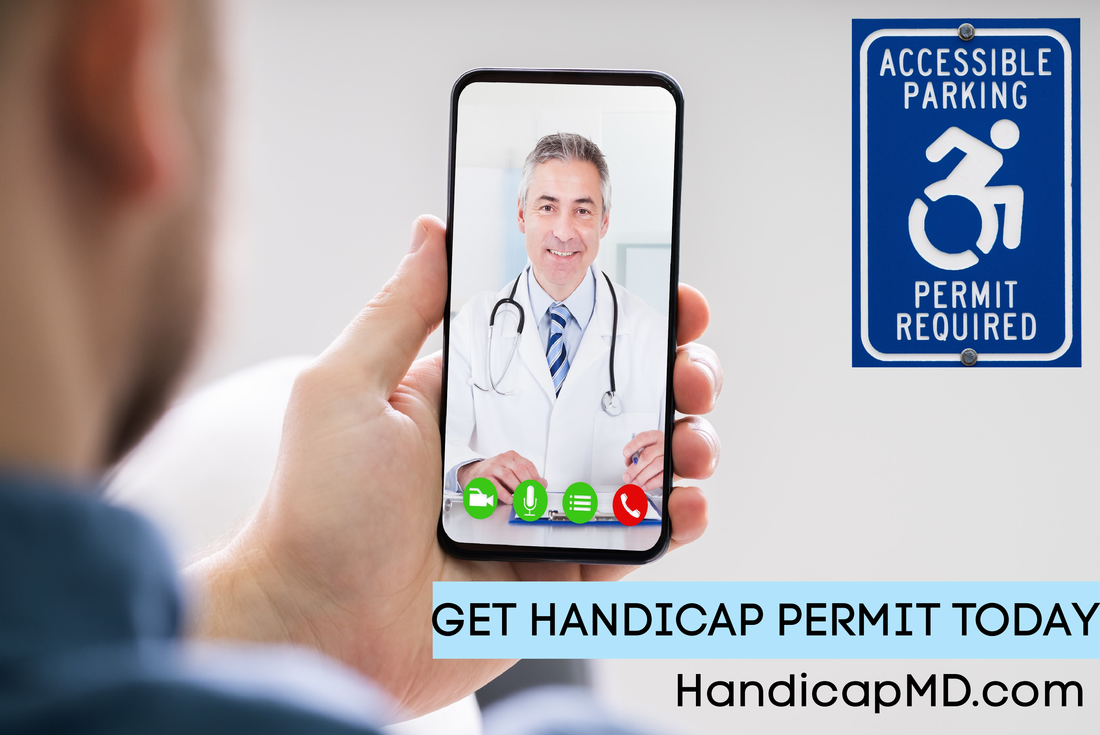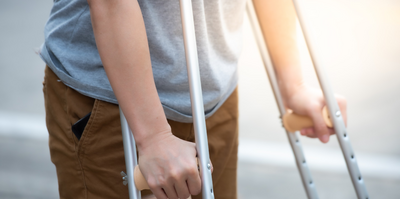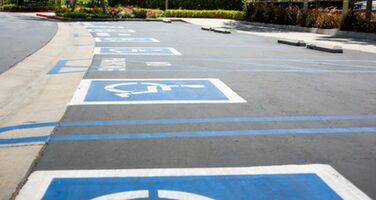
Check out the Details on Getting a Handicap Parking Permit in California
Just like other states in the U.S, California has rules and regulations that cover the issuance of handicap parking permits in California.
On the other hand, some of the elements of these laws are unique to California only. Therefore, if you want to know how these laws apply to you, here is a briefing of what you need to know.
Medical content reviewed by Dr Eric Jackson-Scott MD, Chief Medical Officer
1. Qualifying Conditions
When you do your research, you will most likely find quite a bit of information on Cali’s qualifying conditions. This list covers a wide range of ca DMV handicap parking permit medical conditions, including the following:
- acute sensitivity to light
- rheumatoid arthritis
As you may have noticed, this list of handicap parking laws CA conditions is quite long. Yet, it is not exhaustive. This is because some medical illnesses and diseases are left up to the discretion of the individual’s physician. For example, when your physician evaluates your medical condition, they are also responsible for completing your CA handicap parking permit paperwork and the associated certificate. So, it is also left up to the physician’s discretion to determine if your condition is a qualifying disability.
2. Types of Handicap Parking Permits
When you apply for a handicap parking permit, you will see a form that provides you with 4 different types handicap parking options. According to the disabled parking badge program that is overseen by Cali’s Department of Motor Vehicle, you can apply for one of the following:
Permanent Parking Plate
Permanent Parking Placard
Temporary Parking Placard
Travel Parking Placard
Also, as you apply for these special disability parking permits and learn how do i renew my handicap placard in California instructions, you can review the requirements for each type. This information is listed for you below.
- Permanent Parking Plates - Issued to Permanently Disabled People
- Permanent Parking Placards - Issued to Permanently Disabled People
- Temporary Parking Placards: Issued to Disabled People that only need them for a 6 months period or less (i.e. disabled people who have had an injury, operation, or presently pregnant)
- Travel Parking Placard - Issued for permanently disabled people that’s traveling. For instance, if you are traveling outside of the state, you need to get the travel placard.
As mentioned above, if you are permanently disabled, your disabled parking plate will be permanent. On the other hand, if your medical condition is temporary, your disability parking permit is only valid for 6 months. However, you can renew your disabled parking permit again once it expires.

3. Costs and Fees for a California Handicap Parking Permit
In the state, you can also review the disabled parking rules for its cost and associated fees. The cost and fees of each type are provided below.
- New and Replacement Permanent Parking Plates - Free
- New and Replacement Permanent Parking Placards - Free
- Temporary Parking Placards: $6
- Travel Parking Placard - Free
Special Note: Replacement parking plates and placards permits will cost $21
3. Where a California Handicap Parking Permit Enables You to Park
After you have received your approval disabled parking permit or placard, you need to review the Disabled Parking: All You Need To Know guide that is available online. In this guide, you will have a chance to review the rules that apply to you and your disabled parking permit. Here’s a brief breakdown of where you are entitled to park.
- Marked disabled parking spaces
- Spaces designated with international wheelchair symbols
- Blue curb symbols
- Green curb symbols (denotes unlimited timings)
- Metered parkings for Free
- Resident or merchant designated parking spaces
- White, yellow and red curb spaces
- Private Parking spaces (i.e. designated with a license plate number or a name)
4. How to Apply for a Handicap Parking Permit in California
The first time that you apply for a handicap parking permit in California, you need to consult with a physician or medical professional. These medical professionals will validate your eligibility based on your medical condition. You consult with a physician via an office visit or by setting an appointment via telemedicine. If your condition meets the necessary requirements, the medical professional will complete the essential forms for you.
Additionally, after all of these requirements are completed, the forms, certificate and the payment (if required) will be submitted to the state of DMV.
When you decide to apply for your CA DMV handicap placard, you will be presented with multiple alternatives. Also, before you head out the door, you need to know this information and the following recommendations.
- Stop by HandicapMD - apply online.
- Download an online application, fill out your portion, and then our medical professionals will evaluate & sign your medical certification. Once it is completed, send the original to the DMV.
Special note. In person amputee applicants do not require any type of medical certificate.
After you receive your disable parking permit, you are good to go. However, there’s still a few things to remember.
- All disabled placards will expire in 2 years, and will automatically renew on the associated renewal dates
- Change of addresses must be reported to the DMV via a Notice of Change of Address form
- Everyone must re-apply for their 3rd disabled placard renewal (no more auto processing and no medical professional requirements)
- Change of addresses
- Temporary disabled placards expire at the end of 6 months. To obtain another valid disabled, you must submit a new form. You can do this same process over again. However, 6 submissions for temporary disabled parking permits in California is the limit.

.png)





